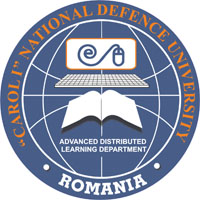OPPORTUNITIES AND CHALLENGES OF USING SERIOUS GAMES IN EDUCATION AND TRAINING ACTIVITIES
OPPORTUNITIES AND CHALLENGES OF USING SERIOUS GAMES IN EDUCATION AND TRAINING ACTIVITIES
Author(s): Dragoş Bărbieru, Daniel Beligan, Ion ROCEANU, Cătălin RaduSubject(s): Education
Published by: Carol I National Defence University Publishing House
Keywords: serious games; disaster risk reduction; training; floods
Summary/Abstract: Games are one of the most widespread forms of entertainment worldwide. Many people feel overwhelmed when faced with the need to learn something heavy or something that they not enjoy. On the other hand, games are associated with pleasure and leisure. Therefore, learning through play, which is ultimately a form of entertainment, it is easier and more attractive. Serious games are a particular case of games that integrate pedagogical objectives, and due to their attractiveness, they are a powerful tool that gives very well results when are used in education and training domain. One of the main motivations to use serious game in different kind of training is because most people enjoy using this approach. Serious Games should be used and they are already used to develop new approaches related to risk prevention and education of citizens to react in case of natural disasters. We believe that serious games are an important tool that ensure the attractiveness but also the necessary impact to educate citizens for the prevention of risks but also regarding the way of action before, during and after a natural disaster situation. In Romania it is not developed yet a culture to educate citizens to react in situations of natural disasters. This paper presents a project in the field of serious games, called MEDGAME designed to cover this gap. The MEDGAME motivation stems from the acknowledgment of the potentiality of Serious Games for education and training and the need to address the challenges related to the citizens’ behavior before, during and after emergency situation, especial floods.
Journal: Conference proceedings of »eLearning and Software for Education« (eLSE)
- Issue Year: 11/2015
- Issue No: 02
- Page Range: 28-33
- Page Count: 6

